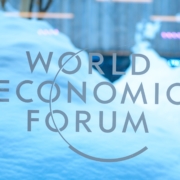Here in the UK we are living in complex times. Last month we voted to leave the EU; it turns out if being in the EU was complicated, leaving is the definition of complexity.
In the hours following the vote there was profound shock, particularly amongst those of us that voted remain. Certainly I had never imagined this result, though neither perhaps had many that voted leave. The post-mortems are mounting and if no one saw it happening, everyone can now explain why it did. Duncan Green, on his ‘Poverty to Power’ Oxfam blog, offers a great summary of contributing factors and avoids any sort of simplistic explanation. For my own reflections (once past the shock and anger), I try looking through the lens of ‘complex adaptive systems’. These are systems that, as Wasafiri, we seek out to work in, and of course unsurprisingly, find that we also live in. One of the clues to understanding such systems is to look for power; where it moves, where it pools, where it stagnates: “Identifying types of power and where they are located is an essential factor in understanding complex social systems” (1)
Well, in the EU referendum many of us saw power in all the normal places; with the business leaders, with the economists, with the analysts of political and economic impact, with our political leaders. Yet BREXIT was voted for in large numbers by those that live outside of London, by working class voters, by older voters, and above all by people who have, politically and economically, been marginalised for a long time; and it turns out however marginalised individually, collectively they held a power that few truly appreciated, at least for this vote.
And now, from the press to the school playground when I pick up my kids, our conversations are dominated by the what ifs, the maybes and the impossible to knows. What we can know is that we are part of a complex adaptive system; one that right now we are trying to change. Like all complex adaptive systems the issues are emerging and changing; they are too complex for any one person or institution to fully understand; and no one body can control, determine or even ‘lead’, let alone predict, exactly what will happen.
So what might BREXIT mean for the UK’s international aid programme? On paper, the value of our aid budget has just dropped by about $1.4 billion(2). This is due to the drop in the value of the pound and the corresponding drop in the value of our aid budget. But in the coming months, as the pound (hopefully) strengthens, or (terrifyingly) drops further, this number will prove to be what it is – a projection. More significantly, though still off somewhere in a post UK Europe, is that the UK contributes about 2 billion Euros to the EU aid budget – though whether this money ‘disappears’ from international aid, or appears in a different form is, as yet, unknowable. Beyond the money there is also the issue of influence. We already see, in many of the countries in Africa where we work, that the UK government has no monopoly on political influence; we compete for space with other national governments, with the boom in Chinese trade and with regional agendas and bodies. As we leave the EU and cease to be part of that substantial infrastructure of delegations, funding and political access, we may have more freedom to ‘sing our own tune’ but we will be singing it on our own, and not as part of a choir of 27 states.
However, as much as many of us didn’t want or vote for BREXIT, and however much we believe it is wrong for our country, we now have it. We will leave the EU. And we need to work out how to do it well. Doing it well means that the process as well as the outcome matter; and that they are actually one and the same. It means working with the emergent nature of the issues; it means engaging across all the stakeholders – those in our country and beyond – however contradictory their views, needs and experiences; it means not pretending that any one person or institution can control, predict or, however brilliant they are, ‘save’ the process. It means recognising that we are living in a complex adaptive system and we had better not underestimate the consequences.
References
(1)
http://www.thebrokeronline.eu/Articles/Connecting-the-dots
(2)
p://www.humanosphere.org/opinion/2016/06/brexit-causes-value-of-u-k-foreign-aid-to-drop-by-1-4-billion/
http://www.bbc.co.uk/news/world-africa-36618843







